 Why do we chose those who don’t love us back with the same intensity? Why can we not love those who are best for us? These are the central questions of Love is a Rebellious Bird. The author drops a few hints as to why Judith persists in this unequal love.
Why do we chose those who don’t love us back with the same intensity? Why can we not love those who are best for us? These are the central questions of Love is a Rebellious Bird. The author drops a few hints as to why Judith persists in this unequal love.
Category: Commercial FIction Reviews
A review of Haywire by Thaddeus Rutkowski
 In her cover endorsement, Alison Lurie characterizes Rutkowski’s writing as “his low-key continually surprising fiction.” Just when you think you know where he’s going, he changes direction. Indeed, “deadpan” aptly describes Rutkowski’s humor. And make no mistake, there’s a lot of humor in Haywire.
In her cover endorsement, Alison Lurie characterizes Rutkowski’s writing as “his low-key continually surprising fiction.” Just when you think you know where he’s going, he changes direction. Indeed, “deadpan” aptly describes Rutkowski’s humor. And make no mistake, there’s a lot of humor in Haywire.
A review of Swan Song by Stewart Kellerman
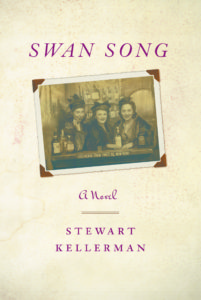 The heartwarming story of the three women friends is a unifying thread in the novel. They met as children living on Livonia Avenue in Brooklyn, and became inseparable. Kitty, “the brave one”, introduced the other two to Chinese food, and pursued her love of dance into a career at Radio City Music Hall.
The heartwarming story of the three women friends is a unifying thread in the novel. They met as children living on Livonia Avenue in Brooklyn, and became inseparable. Kitty, “the brave one”, introduced the other two to Chinese food, and pursued her love of dance into a career at Radio City Music Hall.
A review of Spinster Kang by by Zoë S. Roy
 The novel is rich with sensual details, from the delicious Chinese, Russian and Canadian foods that are prepared at holiday gatherings and recollected through the story to the experiences that Kang has as she falls in love, faces her past, and travels. Spinster Kang is a warm-hearted, delightful story that will engage readers of all interests.
The novel is rich with sensual details, from the delicious Chinese, Russian and Canadian foods that are prepared at holiday gatherings and recollected through the story to the experiences that Kang has as she falls in love, faces her past, and travels. Spinster Kang is a warm-hearted, delightful story that will engage readers of all interests.
A review of What Stella Sees by Sarah Kornfeld
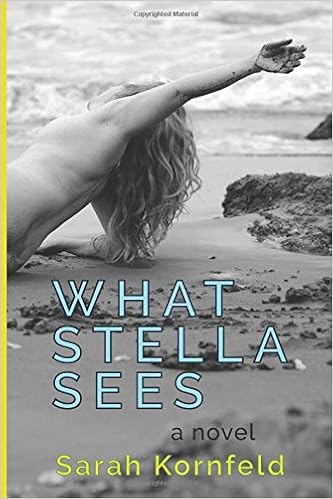 Sarah Kornfeld’s writing is frequently surprising and audacious, with passages of sustained concentration. She is unafraid to report how people feel when they do not know it themselves; occasionally, she hints at a future with which they cannot possibly be acquainted. This is all excellent stuff, unabashed to ‘digress’ or to break rules that are there to be broken.
Sarah Kornfeld’s writing is frequently surprising and audacious, with passages of sustained concentration. She is unafraid to report how people feel when they do not know it themselves; occasionally, she hints at a future with which they cannot possibly be acquainted. This is all excellent stuff, unabashed to ‘digress’ or to break rules that are there to be broken.
A review of Two Natures by Jendi Reiter
 Behind the profane – and sometimes mixed in and virtually indistinguishable – is the sacred, glimpsed in little experiential epiphanies, such as the unexpected response of a homeless man to the gift of a dead lover’s clothes: ‘Have a bleshed day, man.’ Sometimes the gift of happiness is hard to accept, as when Julian’s friend Peter looks love in the eye: ‘It feels like a mistake – this can’t be for me, it’s too good.’
Behind the profane – and sometimes mixed in and virtually indistinguishable – is the sacred, glimpsed in little experiential epiphanies, such as the unexpected response of a homeless man to the gift of a dead lover’s clothes: ‘Have a bleshed day, man.’ Sometimes the gift of happiness is hard to accept, as when Julian’s friend Peter looks love in the eye: ‘It feels like a mistake – this can’t be for me, it’s too good.’
A review of Someday Everything Will All Make Sense by Carol LaHines
 As a backdrop, New York is portrayed not as a place to get lost, but to be found. In its ethnic bars and restaurants, he lets loose to enjoy himself and his mates in all their absurd glory, chanting medieval plainsong over heavy metal playing on the sound system. LaHines’ Someday Everything Will Make Sense is a comedy celebrating transformation that happens in its own due course.
As a backdrop, New York is portrayed not as a place to get lost, but to be found. In its ethnic bars and restaurants, he lets loose to enjoy himself and his mates in all their absurd glory, chanting medieval plainsong over heavy metal playing on the sound system. LaHines’ Someday Everything Will Make Sense is a comedy celebrating transformation that happens in its own due course.
A review of The Girls in the Picture by Melanie Benjamin
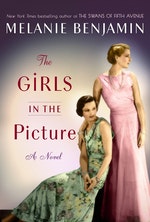 Coming in at just over 400 pages, the book moves at a quick pace despite being chock-full of details. The information is included to simply move the story along—Benjamin manages to keep the plot from becoming too heavy or dramatic. Overall, The Girls in the Picture is a fascinating read, recommended for both film and history buffs interested in the early 20thcentury.
Coming in at just over 400 pages, the book moves at a quick pace despite being chock-full of details. The information is included to simply move the story along—Benjamin manages to keep the plot from becoming too heavy or dramatic. Overall, The Girls in the Picture is a fascinating read, recommended for both film and history buffs interested in the early 20thcentury.
A review of Not Her Daughter by Rea Frey
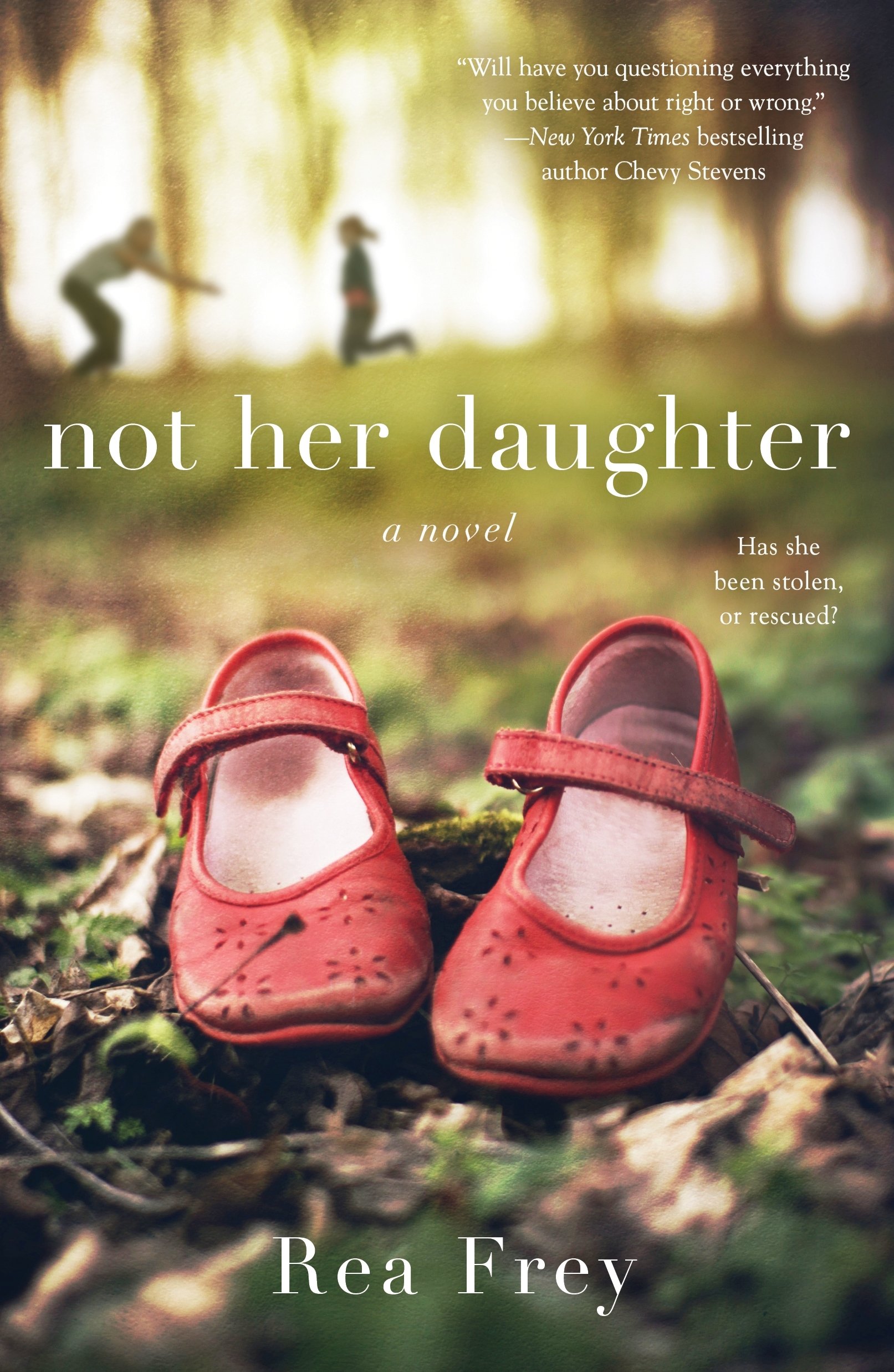 The chain of events that follow set off a list of moral and psychological issues for the characters, but readers will likely find themselves questioning what they would do in a similar situation.
The chain of events that follow set off a list of moral and psychological issues for the characters, but readers will likely find themselves questioning what they would do in a similar situation.
A review of Women are Like Chickens by Annette Sandoval
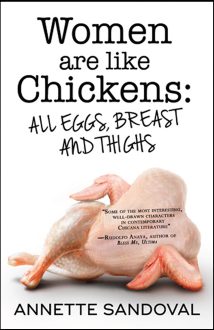 The yarn Sandoval spins of their lives, instead, would make an HBO show-runner proud. Death, love, and food are never too far from each other; episodes of powerful yearning, comical justice, and occasional violence replace each other at a cinematic pace.
The yarn Sandoval spins of their lives, instead, would make an HBO show-runner proud. Death, love, and food are never too far from each other; episodes of powerful yearning, comical justice, and occasional violence replace each other at a cinematic pace.